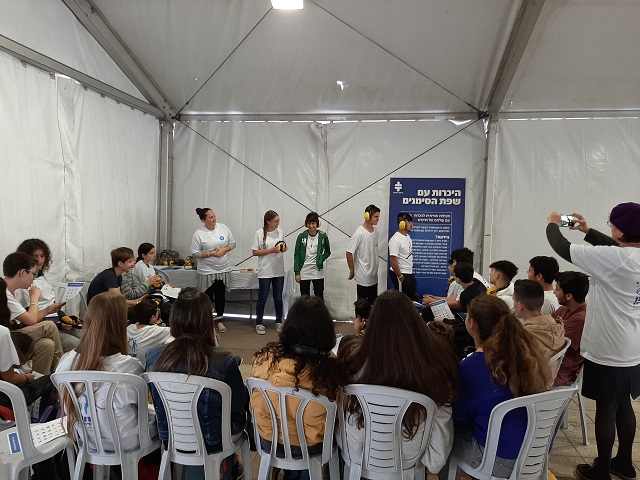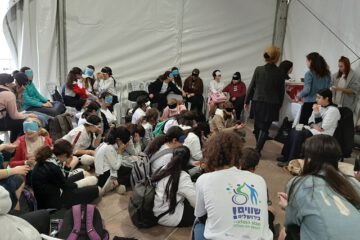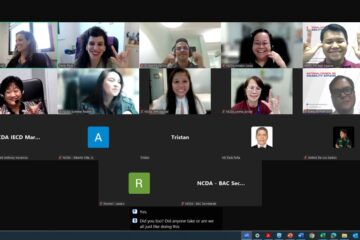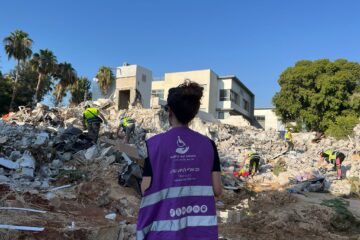If you found yourself on Kikar Safra on Tuesday December third, you were probably quite confused. Why are there children waiting in line eagerly, literally jumping from excitement to push their friends in wheelchairs? Why are kids shrieking in fear when a cup of ice cream is placed in their hand? Shouldn’t they be happy to receive such a treat? I see classes of children walking around communicating silently to one another, but why?
In honor of International Disabilities Day (3/12), Access Israel hosted an experiential event for students in order to raise awareness and foster a sense of understanding of what it is like to live with a disability.
Schools began arriving just before 10:30am and over the course of the next hour and a half, through a series of three activities, got a taste of what life is like with different types of impairments. At each station they were met by someone- with a disability- who began by sharing their story and subsequently guided the students through a simulation of living with their disability.

After visiting all three stations, the participants had an increased awareness of what it is to be wheelchair bound, to be incapable of seeing, and to be able to communicate exclusively through sign language.
Upon arriving at the wheelchair station, students were tasked with completing an obstacle course in a wheelchair with a peer following closely behind to ensure their safety.
During the blind simulation, eye masks were immediately distributed to everyone. While hearing their guide’s story, cups of ice cream were placed in their hands, requiring them to tune into their other senses much more than they were used to in order to determine the flavor and assess the texture.
Similarly, at the deaf station headphones were handed out to everyone and their guide wrote words and phrases on a white board and taught the sign language translation.

Through these experiential simulations participants were able to feel the struggles that are par for the course of people who live with a disability.
When the students first reached each station, they were a bit tense and apprehensive. It was awkward and uncomfortable for them to see people who clearly have impairments and it was difficult for them to relate.
However after just half an hour at each station, the change in their attitudes was apparent. By the end of the wheelchair simulation they understood that the man before them was not defined by his disability and instead is still able to be a father to his son, just like their fathers, and is not even restricted from both playing and coaching basketball!
Furthermore, just because someone is blind it does not mean that he cannot play with his dog the way anyone else can, and just because a woman is deaf it does not stop her from getting up every morning, going to work, and living a full, accomplished life.

The impact of this event was twofold. The first, more superficial part was due to the central, and very public, location where Access Israel set up. There were many passersby who stopped to inquire and listen in. Simply by accident these people educated themselves about the organization, International Disabilities Day, and the importance of spreading awareness.
Part two, however, was much more significant. At the end of the day, hundreds of children went home more empathetic than they came. They were more grateful for their own capabilities, and had gleaned a better understanding of what it means to raise awareness and advocate for things that are important and meaningful.







